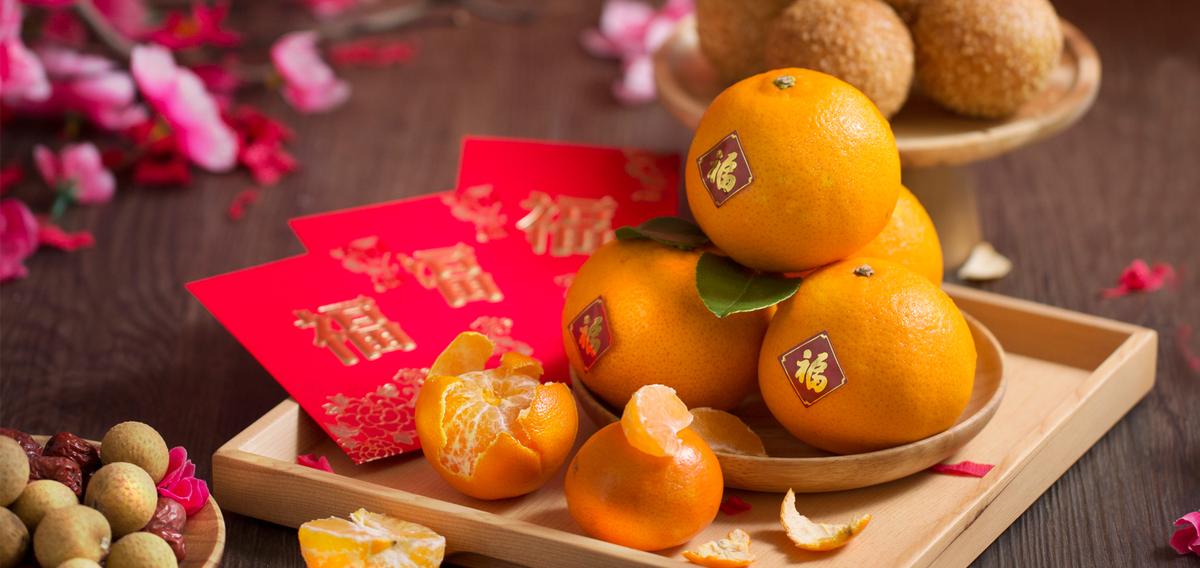Why don't the Chinese have the same calendar?
Before talking shrimp ravioli soup or sticky rice with coconut cream and fresh mango, let's start at the beginning.
Why don't the Chinese have the same calendar?
Because their calendar is luni-solar, that is, based on both the annual cycle of the sun and the regular cycle of the phases of the moon.
Chinese New Year takes place on the first day of the second moon of the winter solstice (between January 21 and February 20).
And if since the 19th century, the Chinese have mainly used our Gregorian calendar, they continue to use theirs to determine the dates of their traditional festivals.
Thus, on February 1, China will celebrate the year 4719 or the year of the Tiger.
A new year placed under the sign of luck, prosperity, benevolence, with,
Read also »
Chinese New Year: what the year of the Tiger has in store for you sign by sign
Fondue, boiled ravioli and rice cakes
While each region and each city has its own specialties and customs, tradition has it that everywhere in China, the New Year's Eve meal, also known as the "spring banquet" or "banquet of the gods of fortune", begins on the evening of the last day of Christmas. 'An to end at the dawn of the new year.
And, since this feast symbolizes the new period to come, it must be convivial, abundant and incredibly greedy.
Chinese food recipe
Shrimp Dumpling Soup
According to the Chinese ritual, eating shrimp at New Year brings happiness and well-being.
This entry fits perfectly into the tradition.
See the Shrimp Dumpling Soup recipe.
Photo Souksavanh Khamla
Shrimp skewers on a bed of celery with ginger
Nothing better than a shrimp skewer and a few herbs to sublimate a starter.
See the Shrimp Skewers on a Bed of Ginger Celery recipe.
Buy on Pourdebon.com
DP Miele
Dim sum stuffed with bok choi
These melt-in-the-mouth steamed preparations deliver an enchanting scent of pak choy cabbage and ginger.
See the recipe for dim sum stuffed with bok choi.
DP Miele
Spring rolls with pork
The traditional recipe for spring rolls with pork, ideal as a starter.
See the pork spring rolls recipe.
Photo Souksavanh Khamla
coconut balls
fortune cookies
Chinese sautéed prawns
Chinese shrimp soup
Chicken with bamboo shoots
Crab spring roll
Shrimps curry
Sticky rice with coconut cream and fresh mango
Chicken chop suey
See the slideshow
13 pictures
On the menu, among other things, skewers of meat (beef or pork), fish and seafood. But also noodles, the length of which is synonymous with longevity, "jiaozi" ravioli, symbols of wealth - their shape reminiscent of traditional Chinese gold ingots - and “nian gao” steamed rice cakes filled with fruits, red beans, nuts or sugar.
Offer red envelopes
During traditional festivals, weddings, receptions and especially during New Year celebrations, the Chinese customarily give each other rectangular red hóng bāo envelopes.
A gift of lucky money, a symbol of prosperity and good fortune.
Also in vogue, the Chinese fondue, the festive dish par excellence.
It is a giant broth of mushrooms and vegetables decorated with cabbage, bean sprouts and ginger, in which everyone is invited to dip their scallops and other sticks of surimi and green vegetables.
For dessert, dried fruits, clementines, melons and other sweets, fortune cookies and sweets will also take pride of place in the center of the table.
All, symbols of good health, happiness and prosperity.
And if there are leftovers, it's positive: it's once again a sign of future success.
It is even said that some would purposely not finish their plates to ensure a good year...
* This article originally published on January 9, 2017 has been updated.
The editorial staff advises you
Chinese New Year: between traditional Asian recipes and revisited dishes
Discovering “temple food” in Korea, between minimalist gastronomy and spirituality
These foods that almost never expire

